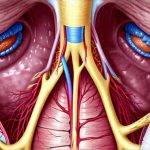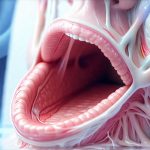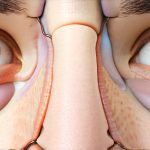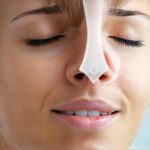Gastroesophageal reflux disease (GERD) is a surprisingly common condition affecting millions worldwide, often manifesting as heartburn, but its impact extends far beyond just digestive discomfort. Many individuals experience a constellation of seemingly unrelated symptoms due to GERD, and one particularly frustrating example is nighttime nasal congestion. This isn’t simply a matter of allergies or a cold; it’s frequently an overlooked consequence of stomach acid traveling upwards during sleep, leading to inflammation and irritation in the sinuses and nasal passages. Understanding this connection – how acid reflux can cause nasal stuffiness – is crucial for effective management and relief.
The link between GERD and nighttime nasal congestion isn’t always immediately obvious because the symptoms can appear disconnected. During waking hours, gravity helps keep stomach acid down, but when we lie flat to sleep, this natural barrier weakens. Additionally, acid production can actually increase while lying down, and our bodies naturally clear less efficiently during sleep. This creates an ideal scenario for reflux to occur. When acidic contents reach the esophagus, the vagus nerve – a cranial nerve responsible for numerous bodily functions including inflammation responses – gets activated, triggering inflammatory processes that extend beyond just the esophagus itself. These processes can affect the sinuses, leading to swelling of nasal tissues and subsequent congestion.
The GERD-Nasal Congestion Connection Explained
The physiological mechanisms at play are complex but fundamentally involve a bidirectional relationship between the upper airway and the esophagus. Laryngopharyngeal reflux (LPR), often considered a ‘silent reflux’ because it doesn’t always present with typical heartburn, is particularly relevant here. In LPR, stomach acid reaches higher up into the throat, even as far as the nasal passages, without the individual necessarily feeling intense burning in the chest. This chronic exposure to acid irritates the sensitive lining of the sinuses and nose, causing inflammation. The body responds by producing more mucus – attempting to neutralize the acid and protect itself – which contributes to nasal blockage.
This isn’t just about direct acid contact; the inflammatory response triggered by GERD can also impact nasal passages indirectly. Acid reflux stimulates histamine release, a chemical involved in allergic reactions, even in people who aren’t typically allergy sufferers. This histamine further exacerbates inflammation and mucus production in the nose, mimicking allergy symptoms. – The result is often a persistent stuffy nose that doesn’t respond to typical antihistamines or decongestants. – It’s important to distinguish this from allergies through proper diagnosis because treatment approaches differ significantly. Understanding GERD and bad breath can also aid in identifying the root cause of related symptoms.
Furthermore, sleep itself can worsen GERD symptoms. When we sleep, the lower esophageal sphincter (LES) – the muscle that prevents stomach acid from flowing back up – relaxes more readily. This relaxation, combined with a flattened posture, makes reflux more likely to occur during the night. The resulting nasal congestion then disrupts sleep quality further, creating a vicious cycle of GERD-induced congestion and sleep deprivation. Addressing both GERD and sleep hygiene is essential for breaking this cycle. Considering dinner meals for GERD and IBS can help mitigate symptoms before bedtime.
Identifying GERD as the Root Cause
Pinpointing GERD as the underlying cause of nighttime nasal congestion requires careful evaluation. Many people assume it’s simply allergies, leading to ineffective treatment with over-the-counter allergy medications. A thorough medical history and physical examination are crucial first steps. Your healthcare provider will likely ask about your symptoms – including frequency and severity of heartburn (even if mild), regurgitation, sore throat, hoarseness, chronic cough, and nasal congestion – as well as any factors that seem to trigger or alleviate them.
Diagnostic testing can help confirm the connection. – Endoscopy allows a direct visualization of the esophagus to check for inflammation or damage. – 24-hour pH monitoring measures the amount of acid in your esophagus over a 24-hour period, providing objective evidence of reflux. – Impedance testing complements pH monitoring by detecting both acidic and non-acidic reflux, which is increasingly recognized as contributing to LPR symptoms. It’s essential to remember that standard allergy tests might come back negative even if nasal congestion is GERD-related. If you experience difficulty swallowing alongside these symptoms, explore GERD and swallowing difficulties.
However, relying solely on testing isn’t always sufficient. Some individuals experience ‘silent reflux’ with minimal esophageal inflammation detectable during endoscopy. In these cases, a therapeutic trial – meaning trying acid-reducing medications and observing symptom improvement – can be diagnostic. If your nasal congestion significantly improves with medication, it strongly suggests GERD is the culprit. A healthcare professional should always guide this process to ensure appropriate medication selection and monitoring. It’s important to understand differences between GERD without esophagitis and cases with esophageal damage.
Lifestyle Modifications for Relief
Lifestyle adjustments play a significant role in managing both GERD and associated nasal congestion. These aren’t quick fixes but rather long-term strategies aimed at reducing reflux episodes and minimizing irritation. 1. Dietary Changes: Avoid trigger foods such as fatty or fried foods, chocolate, caffeine, alcohol, spicy foods, and citrus fruits. Eating smaller, more frequent meals can also help reduce stomach pressure. 2. Elevate the Head of Your Bed: Raising the head of your bed by 6-8 inches using blocks or a wedge pillow helps gravity keep acid down during sleep. Simply using extra pillows often isn’t effective because it doesn’t provide consistent elevation.
- Timing of Meals: Avoid eating within 2-3 hours of bedtime. This gives your stomach time to empty before you lie down, reducing the risk of reflux. 4. Weight Management: If you are overweight or obese, losing even a small amount of weight can significantly reduce intra-abdominal pressure and lessen GERD symptoms. 5. Quit Smoking: Smoking weakens the LES and increases acid production. Quitting smoking is one of the most impactful changes you can make for your overall health and GERD management. Consistency is key with these lifestyle modifications. Understanding the connection between GERD and hiccups may also help manage related discomfort.
Medical Management Options
While lifestyle adjustments are foundational, medical intervention is often necessary to effectively control GERD-related nasal congestion. Over-the-counter medications like antacids can provide temporary relief for mild symptoms, but they don’t address the underlying cause. – H2 Blockers reduce acid production in the stomach and can be helpful for moderate symptoms. – Proton Pump Inhibitors (PPIs) are more potent acid suppressors and often prescribed for severe GERD or when H2 blockers aren’t sufficient. PPIs should be used under a healthcare professional’s guidance due to potential long-term side effects.
In some cases, addressing the inflammatory component of nasal congestion can provide additional relief. – Nasal saline rinses can help clear mucus and reduce inflammation in the nasal passages. – Topical nasal corticosteroids (available by prescription) can also reduce inflammation, but should be used cautiously and as directed by your doctor. It’s crucial to remember that treating only the symptoms of nasal congestion without addressing the underlying GERD won’t provide lasting relief. A comprehensive approach, combining lifestyle changes with appropriate medical management, is essential for long-term success. In severe cases requiring further investigation, consider GERD with esophagitis.


















